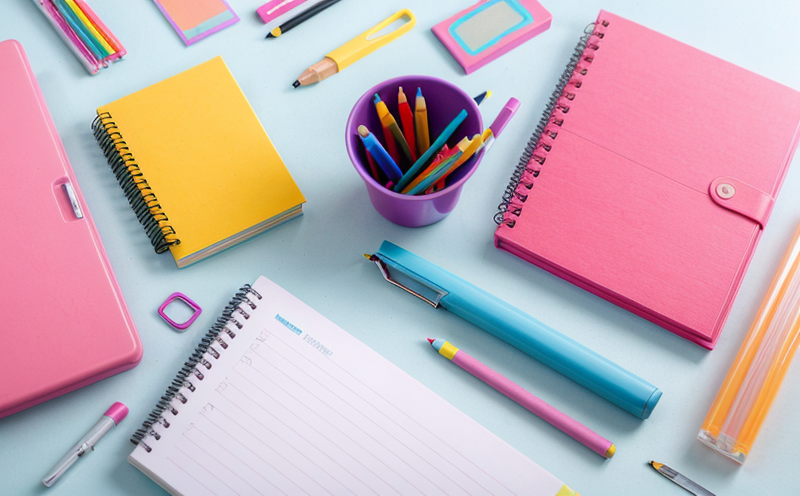Antibacterial Testing of Coated School Supplies
In today’s fast-evolving consumer product landscape, ensuring safety and hygiene is paramount. For educational materials like pens, pencils, erasers, and other stationery items used by children in schools and classrooms, the risk of microbial contamination can pose significant health concerns. This is where antibacterial testing of coated school supplies plays a critical role.
The process involves a series of laboratory tests designed to evaluate the efficacy of antimicrobial coatings on these products against common pathogens such as E. coli, S. aureus, and other bacteria that can thrive in environments where they come into contact with human skin or surfaces. The goal is not only to identify whether a coating is effective but also to understand how durable it remains over time under various conditions.
Our testing methods are aligned with international standards such as ISO 22196 and ASTM E2180. These guidelines provide a robust framework for conducting tests that ensure both accuracy and consistency. We use state-of-the-art equipment, including scanning electron microscopes (SEM) and Fourier transform infrared spectroscopy (FTIR), to analyze the molecular structure of coatings and their interaction with pathogens.
The testing procedure typically includes several stages:
- Preparation of specimens by coating them uniformly with a sample material
- Incubation under controlled conditions to simulate real-world usage scenarios
- Application of bacterial cultures and measurement of their growth inhibition
- Analysis using microbiological assays to quantify the antibacterial activity
- Evaluation of durability through repeated exposure tests
The results are comprehensive, providing detailed insights into the performance of coatings against specified bacteria. This information is invaluable for manufacturers looking to enhance product safety and meet regulatory requirements in markets around the world.
Industry Applications
| Industry Segment | Main Application |
|---|---|
| School Supplies Manufacturers | Evaluating the effectiveness of antimicrobial coatings on products like pens, pencils, and erasers. |
| Textile and Apparel Industry | Testing fabrics used in school uniforms for their antibacterial properties. |
| Application | Bacteria Tested |
|---|---|
| Evaluating Coatings on School Supplies | E. coli, S. aureus, Pseudomonas aeruginosa |
| Testing Fabrics for School Uniforms | Bacillus subtilis, Staphylococcus epidermidis |
Quality and Reliability Assurance
Our testing ensures that the products you send to market are not only safe but also meet the highest standards of quality. By adhering strictly to international norms, we guarantee consistency across all batches. Our rigorous protocols help prevent any potential issues before they reach end users.
We offer a range of services tailored specifically for this sector, including custom solutions for new product developments and ongoing compliance checks. With our expertise, you can trust that your products will stand out in terms of safety and hygiene, fostering confidence among parents and educators alike.
International Acceptance and Recognition
- United States: Compliance with FDA regulations on antibacterial substances.
- European Union: Conformity to the REACH regulation regarding safety of chemicals used in products.
- China: Adherence to GB/T standards for hygiene requirements for school supplies.
Our laboratory is accredited by leading bodies such as ISO/IEC 17025 and meets the stringent criteria set forth by these organizations. This ensures that our findings are accepted globally, facilitating smoother regulatory processes across different markets.





